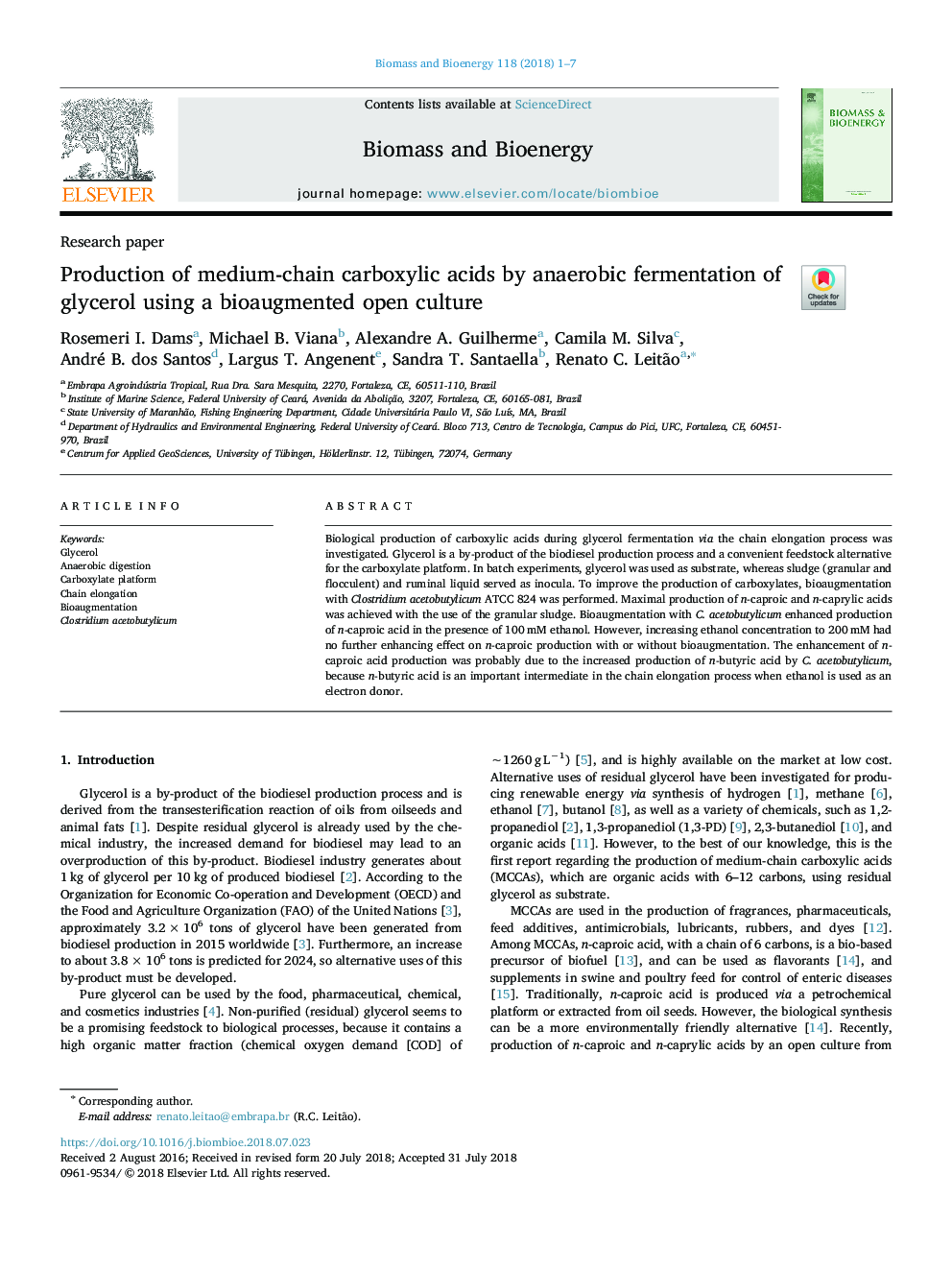| Article ID | Journal | Published Year | Pages | File Type |
|---|---|---|---|---|
| 7062786 | Biomass and Bioenergy | 2018 | 7 Pages |
Abstract
Biological production of carboxylic acids during glycerol fermentation via the chain elongation process was investigated. Glycerol is a by-product of the biodiesel production process and a convenient feedstock alternative for the carboxylate platform. In batch experiments, glycerol was used as substrate, whereas sludge (granular and flocculent) and ruminal liquid served as inocula. To improve the production of carboxylates, bioaugmentation with Clostridium acetobutylicum ATCC 824 was performed. Maximal production of n-caproic and n-caprylic acids was achieved with the use of the granular sludge. Bioaugmentation with C. acetobutylicum enhanced production of n-caproic acid in the presence of 100â¯mM ethanol. However, increasing ethanol concentration to 200â¯mM had no further enhancing effect on n-caproic production with or without bioaugmentation. The enhancement of n-caproic acid production was probably due to the increased production of n-butyric acid by C. acetobutylicum, because n-butyric acid is an important intermediate in the chain elongation process when ethanol is used as an electron donor.
Keywords
Related Topics
Physical Sciences and Engineering
Chemical Engineering
Process Chemistry and Technology
Authors
Rosemeri I. Dams, Michael B. Viana, Alexandre A. Guilherme, Camila M. Silva, André B. dos Santos, Largus T. Angenent, Sandra T. Santaella, Renato C. Leitão,
